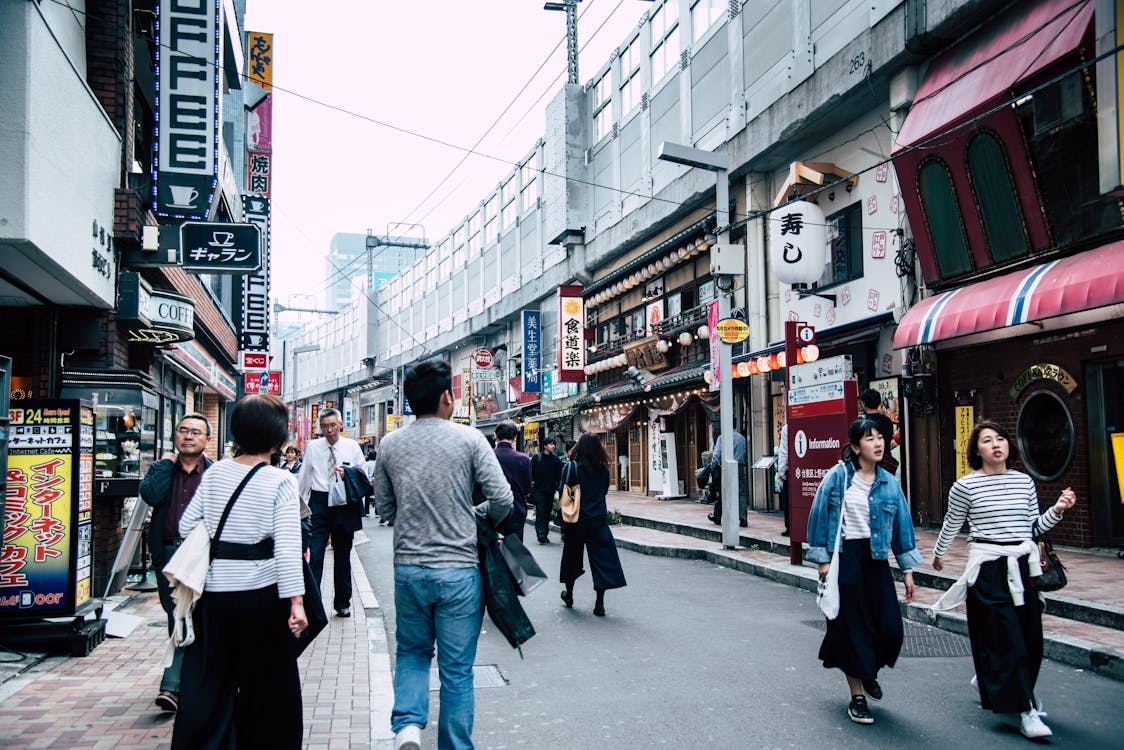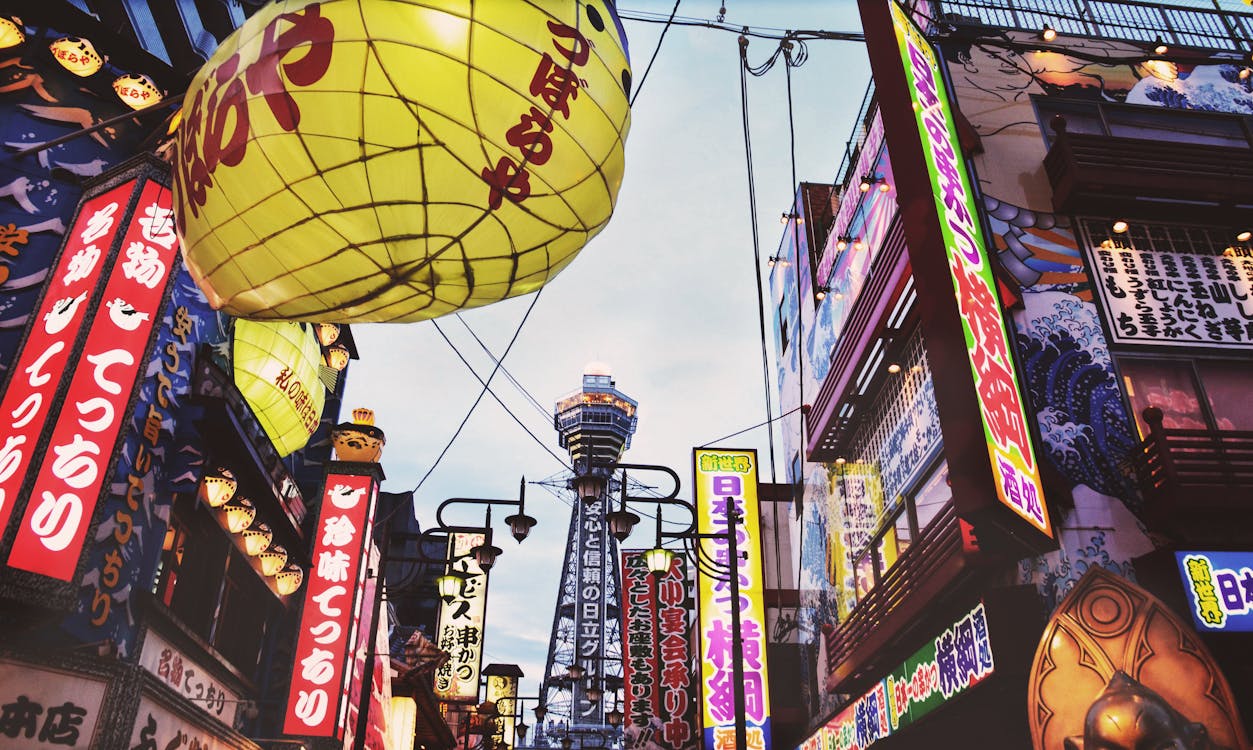Does Japan hire foreigners? If you’re considering a job search in Japan, you may be wondering what the requirements set forth by the Japanese government. Let’s find out.
Yes indeed Japan hires foreigners! But depending on the kind of job you want, there may be certain requirements such as a particular visa or a university degree. For employment by an English school, a spousal visa or a degree is most often required. The alternative is finding a Japanese local company that will sponsor your visa. For hospitality work, to legally gain employment it depends on the type of license the bar or restaurant has. For example, with a student visa you may be ok to work in restaurants, but not bars or Hooters.
Japan, a center of a prominent and abundant culture, has been on the bucket list of Western foreigners and neighboring Asian countries alike. After all, it is filled to the brim with promising attractions found exclusively in the land of the rising sun. Japan is astonishingly versatile in that it is a highly advanced country regarding modern technology. However, it is still observing the oldest of their traditions that have existed for thousands of years. The latter explains why Japanese people have maintained a polite and respectful custom- more reason to love the country when you finally decide to pick up your passport.
So if you’re interested in pursuing employment opportunities in Japan, it’s important to familiarize yourself with the country’s hiring practices and working conditions. With the right qualifications and language skills, you could find a fulfilling career in this amazing country! Does Japan hire foreigners? Let’s find out
Does Japan Hire Foreigners? How, When, and Why?
Konnichiwa (こんにちは)!
It is not a new concept that foreigners have flocked to Japan- some for leisure and some for residence. In 2017 alone, 53.5% of the 99 000 immigrants went to the country permanently. Also, around 218 000 permits are available to temporary and seasonal labor migrants. With the continuous rising of migration rates, Japan implemented what is known to be a historic immigration reform last April of 2019. This reform allowed for more accommodating visa programs that helped 345,000 immigrants relocate to Japan for the next five years. The reform enabled residence for low-skilled workers for up to five years. Meanwhile, foreigners with specialized skills are open for an indefinite time.
But back in the 1960s, Japan had an existing immigration policy that allowed foreign workers (mainly Koreans and Chinese) to take residence in their country. However, this only applied to highly skilled workers. In contrast, low and unskilled workers cannot gain entry to the country. A reform happened in the 1980s when there were more jobs than workers. But this only involved easing the restrictions for some because unskilled workers and low-skilled ones still had to fight for their spots.
Modern times have allowed for changes that have been beneficial for both foreigners and locals. Japan expects foreign workers to contribute 40% in the net increase among highly skilled labor in the upcoming four years, according to Showa Women’s University business professor Naohiro Yashiro. Residents of Japan have shown positive responses and have been most accommodating to the growing population of foreigners. Compared to European and American nations, where conflicting opinions on immigration and national identity have made it difficult for foreigners to feel at ease, Japan’s reception has been favorable.
Job Hunting in Japan
Does Japan hire foreigners? Let go of your fears because the answer is yes. Whether you are looking for a full-time, part-time, or freelance job in Japan, many jobs are available for you to choose from.
· Full-Time Jobs
As a native-tongue-speaking country, Japan is on the lookout for English-speaking workers of different ethnicity to teach English to the locals. This job will be a merry walk in the park if you have an impressive command of the English language, among other attributes. Moreover, you’ll be able to immerse yourself as an ESL teacher in Japanese culture because you will be working directly with your students.
Another job is in Information Technology. Well, almost everybody knows that Japan is one of the leaders in technical innovations. There are tons of IT-related occupations. Companies of varying sizes are looking for personnel like technicians, software developers, and data analysts, to name a few.
· Part-Time Jobs
If you have an introductory Japanese language skill set and want a fun part-time job right in the heart of Japan, Tokyo, you might want to consider being a Go-Kart tour guide. You read that right! With this job, you get to race around Tokyo dressed as one of the famous Mario Kart game characters.
If you are at the conversational level of Japanese speaking, you might want to be a convenience store clerk. Convenience stores in Japan hire foreigners as long as they can converse with customers regarding their queries. But if you want part-time work involving retail, it would also be necessary to speak the Japanese language to interact with the customers.
· Freelance Jobs
There are countless freelance jobs available in Japan for skilled workers that have already mastered their craft and not for entry-level and inexperienced workers. This type of job favors people who want to manage their working hours while still delivering excellent results.
What you’ll need as a foreign worker in Japan
Finding a job is not all sunshine and rainbows. Certain limitations would hinder you from the goals that you have set for yourself. The entirety of your work scope is affected by the type of visa that you possess.
Student visas are only limited to 28 hours of work and require an additional work stamp from the immigration office. As far as work visas go, they are only valid in the specified work domain you declared. And travel visa holders are not allowed any work during their stay inside the country.
As for the language requirement, first and foremost, it is advisable to have a good grasp of both the Japanese and English languages, for these two are prominent in the business and working industries. Along with the language is your skill set and area of expertise- at least a 4-year college degree even to start you off.
Does Japan Hire Foreigners: Locals vs. Immigrants
Even though there is not much negative prejudice against immigrants, the Japanese people are in the affirmative regarding a stricter approach against illegal immigration.
Based on a survey by the Worlds Values Survey about prioritizing between Japanese people and immigrants during job scarcity, the majority of the respondents agreed that employment is subject to local distribution among the Japanese nationals. Compared to other countries like Sweden and the Netherlands having a lower percentage, Japan has a higher affirmative response rate. These show how Japanese people see immigrants as their guests more than anything. And according to an associate professor at the Institute of Social Science, Kikuko Nagayoshi, such sentiments, if allowed to evolve to the extremes, can ignite discrimination against foreign nationalities. A survey that Nagayoshi conducted with fellow researchers showed that 60% of the respondents personally believe that increased immigration induces higher crime rates in the country. But Nagayoshi claims that this is more complicated than it seems, and further studies are needed.
Besides, a person’s opinion of another is just that- an opinion. It does not necessarily constitute the truth. A person’s psyche is a complicated topic, and simplifying it based on another’s judgment is pointless.
Life for a Foreigner in Japan
“Does Japan hire foreigners?” is a common question for individuals who are planning to work in Japan. Living and working in another country is anything but easy. If you came knocking with just a bag of clothes and zero knowledge, then my friend, this would be difficult for you. Japan or any other country at that will not cut you some slack. It will come at you in all directions, unrelenting, and when you think that you’re finally learning it, it’ll come right back at you- twice as much this time. And this is the reality of being a foreigner.
If you read testimonials or personal blogs stating people’s experiences regarding this, you would find that the language barrier is a recurring theme. Ultimately, it is the great wall that divides us all. As a foreigner in a work setting, everything takes extra time for you. You have to learn their ways and adjust to what is conventional. Almost nothing is muscle memory. You are like a child learning the basics, the difference? You already know those things…just in another language and culture.
Additionally, you can never really be complacent–something that needs emphasizing. Don’t. What would send you packing and back to your homeland is this kind of mindset. Thinking that you speak English can land you a job, but will it be fulfilling? Not really, especially if you don’t want English to be the job. Human beings have specific needs, and occupational gratification is one of those. Being a degree holder does not even guarantee a paved way toward immediate success. The majority of foreigners, some even master’s degree holders, attend universities in Japan to acquire much-needed skills or learn the language.
What to think about in times of hardship?
You should not feel discouraged about your plans to move to Japan after reading the previous statements. You really shouldn’t! What is life, if not without obstacles, right? Just think of everything that Japan has to offer. The thought of food alone should get you in high spirits again. And it’s not just the sushi, no siree. It’s the entirety of authentic Japanese cuisine that you’ll be able to eat daily. Now think of the traditions that you’ll be able to participate in—total cultural exposure at the palm of your hand.
You’ll have the opportunity to participate in traditions that have been passed down for generations and learn more about the unique cultural differences that make Japan so special. Let’s take sports for instance. The usual one that immediately comes to mind is Sumo. The more traditional sport with its roots in the form of a Shinto ritual- takes the part that involves throwing salt to purify the ring for the match. Still, the more modern one and the king of team sports in Japan is the American pastime of baseball. But to conform to a more traditional name, the Japanese people called it Yakyu, which means field ball. Talk about infiltrating a country.
None of these are necessarily unhappy circumstances. But, they are real ones that can give you a general idea of what’s in store for you.
Working alongside Japanese people

Once you are working in Japan, it is a given that the majority of your co-workers, if not all, are Japanese. It entails business protocols that might be new to you.
To begin with, the Japanese are a very well-mannered bunch. Greetings and salutations are always used in any situation. Paired this with the customary bowing, and you’re all set for the basics of Japanese social conduct. But make sure not to bow with your hands in a clapping gesture. this is only done by praying. Aim for a formal bow at work by bowing deeper or lowly. Bowing is not only done as greetings or goodbyes. It is also for showing respect to other people.
In Japan, formalities and proper name calling are not the typical Mrs, Miss, or Mr. They add -san at the end of your name rather than at the beginning. During introductions, the Japanese folk says their last name before their first and when you are addressing them, use their last name plus -san unless they ask you otherwise. Japanese formalities are intricate because they vary with the situation and the person you are addressing. But you’ll get the hang of it eventually.
Other things to keep in mind
For meetings, be sure to be punctual. If you invite another, you must arrive at your agreed-upon place before them and greet them properly. Allot a considerable amount of time before meetings to let them know that you have arrived. It would be best if you were the early bird, always. When running late, give them a courtesy call to let them know so that you would not cause offense or disrespect. This one, of course, applies to all social settings and not just in Japan.
Moving on to handing out business cards, hold yours in both hands with the text facing them while also bowing (again!) slightly. Upon receiving theirs, check both sides and clarify the information written on their card. Be sure not to put it away immediately and wait for them to leave. It is also advisable to hand yours below theirs to show their superiority. After two days, send them an email to reintroduce yourself and say how glad you are for meeting them.
As for emails, they must start with a “Dear <their surname>-san” even if you have been emailing back and forth. The formality is not foregone. Formality is also the reason why you should not inquire about anything personal. Stick with the typical ‘I hope you’re ________’ statements.
In the event of drinking, because drinking with co-workers and clients is part of the job and is a sign of a great relationship, pour others’ drinks first and wait until someone does the same for you. Clinking your glasses is typical, along with the Japanese version of cheers, kanpai!
So, to answer the question “Does Japan hire foreigners?” – yes, they do, but it’s important to be aware of and respect cultural norms in the workplace.
Know that you are not alone.
Working in Japan will involve many things for you to consider. The basics alone can get your mind reeling and you in a frantic mode- affordable housing, accessibility to the essentials, location of your work, and the list goes on.
Kanagawa Housing Support Center for Foreigners, also known as SumaSen, addresses these kinds of issues among foreigners. This support group provides necessary housing and livelihood. Its executive director, Isao Nagasawa, has a phrase that embodies their organization: “able to feel safe, able to eat, and able to sleep.”
Creating a country that easily caters to housing issues of foreigners has been one of the objectives of SumaSen. They incorporated the help of real estate agencies to make living situations that have been an ongoing issue since the 1990s accessible. As the years go by and the influx of foreigners arises, more people with housing, labor, debts, and other financial problems come to SumaSen for help.
Going back to the language barrier, SumaSen has taken on the role of Japanese-language lesson provider because of the lack of measures from the government. Other than the matters mentioned above, learning the language is a predicament that haunts the majority because, let’s face it, fluency in Japanese opens massive doors of opportunities. SumaSen provides one-stop support for its clients and is sworn to hold on to a case until its resolution is fully achieved. They even created a manual that translates to five different languages that answer frequently asked questions. It also categorizes typical issues to make it easier for foreigners and government workers to understand each other.
It doesn’t have to be Sayonara just yet.
Does Japan hire foreigners? After having a clear grasp of what is waiting for you there, you need not worry whether Japan hires foreigners. This is never a question of if but rather a loaded question of how much you can adapt. Why not start with the basics of the Japanese language for your future work in Japan?
Besides, it is the land of the rising sun, after all. And where the sun rises, Sakuras are not the only beautiful things that bloom, and unlike those beautiful flowers that only appear in mid-March and early May, opportunities in Japan blossom all year round.





